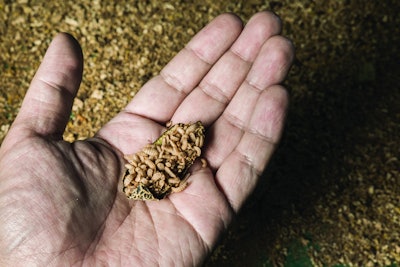
An ongoing debate about using non-animal proteins in pet food products is becoming noticeable in Mexico, Argentina and other countries in South America. Yet, such discussion is not as relevant as is the date when these types of pet food products might enter and develop in Latin American markets.
With increasing awareness of carbon emissions and animals’ environmental footprints, along with the social responsibility of companies, it is likely that at some point, the concept will materialize in pet food product innovation in Latin America. Pet foods containing non-animal proteins are already in a few markets, yet showing modest results.
Mexican consumers optimistic about insect-based pet food
According to a poll carried out on LinkedIn by Ricardo Vizcaya, a commercial consultant to the Latin American pet food industry, 70% of respondents said they would feed their dogs and cats insect-based pet food products. In the same poll, 22% mentioned they would only consider insect protein in pet treats, while the remaining 8% said they wouldn’t feed their pets any food products at all made with insect protein.
Europe leads the insect-protein industry with nearly 100 factories that produce insect flours for a few consumer industries, such as pet food, Vizcaya said. In his view, consumer abidance is essential for these products to blossom, as consumers are willing to help the environment in any way they can.
Yet, the first step in Mexico is authorities approving the use of insect-based flours. As a few manufacturers adopt insect protein in their formulations, others will follow. Vizcaya believes the development of insect protein in Mexico would snowball then, and that cat food producers might be the first to manufacture foods using such flours.
Is vegan pet food more likely to happen?
In Mexico, there is no 100% vegan pet food locally produced. Yet there are plenty of dog treat brands that claim to be vegan.
One of the main barriers for vegan pet food in Mexico is the lack of acceptance of plant-based protein by the industry, particularly nutritionists, despite the acceptance of vegan dog owners. For cats, on the other hand, vegan food is less likely to be welcomed as cats are true carnivores.
Alternative pet food products will come, but not soon
The relevant question for the Mexican pet food industry is when such alternative products would enter the market. The current evidence shows it may not happen soon.
Yet there is hope. A few consumer studies conducted by TripleThree International revealed that younger generations are more likely to be concerned about environmental issues and willing to change some of their consumption patterns to help save the planet.














